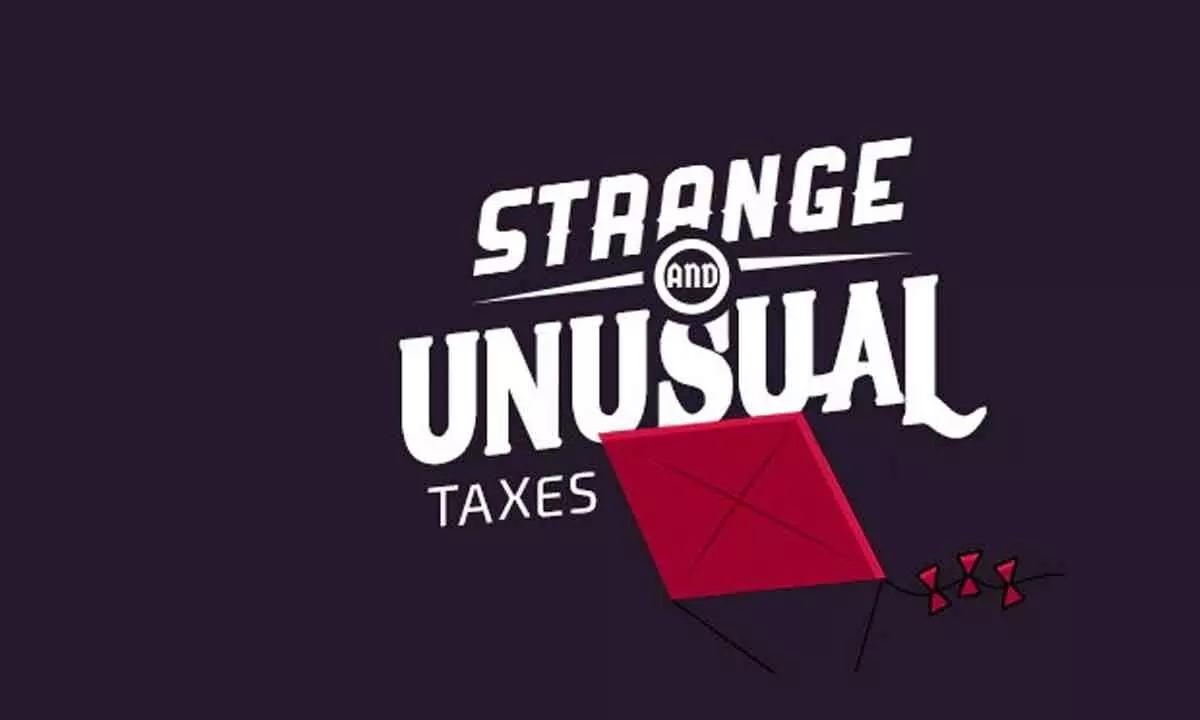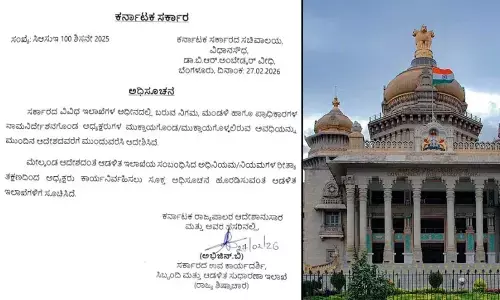Some strange and unusual taxes

Historically, several stranger taxes have existed throughout the world, including the ‘Beard Tax’ in Russia to discourage men from sporting beards, the window tax in England, France, Scotland and Ireland, which is calculated on the basis of the number of windows the house had, and the ‘Bachelor Tax’ in the USA and Germany, among others, where single men were taxed for not having got married!
“Our new Constitution is now established, and has an appearance that promises permanency; but in this world nothing can be said to be certain, except death and taxes” said Benjamin Franklin, a Founder Father of the United States of America and drafter of the Declaration of Independence, in a letter to French Physicist Jean-Baptiste Le Roy in 1789.
The English word, ‘money,’ first appeared in the 14th century. It was derived from the Latin word ‘moneta’, a name given to the Roman goddess Juno, near whose temple the Romans first began minting coins around 300 BCE. Historians believe metal objects were first used as money as early as 5,000 BC. Around 700 BC, the Lydians became the first Western culture to make coins.
That money is among the most desirable things, for a human being, can hardly be disputed. One can quite understand why the sensational band of the 1960s, ‘The Beatles’, sang rhythm and blues number ‘Money, That’s What I Want,’ originally rendered by Crooner Barrett Strong.
An excess of riches can also cause unhappiness, a sentiment which was highlighted in “Mo ‘money, mo’ problems”, a popular 1997 vintage song sung by American rapper Jonathan Lyndale Kirk, known professionally as DaBaby. That sentiment was amplified by the line “For whoso hath too much of any good, of the same good, he shall soon be bereft,” from John Lydgate’s poem, written during the tumultuous times in the mid-15th century when the Hundred Years War between the kingdoms of England and France was still raging. And, as with most wise and profoundly meaningful phrases, it was William Shakespeare who gave it fresh life, making Rosalind, a character in his play, ‘As You Like It’, say, “Why then, can one desire too much of a good thing?”
Realising that people needed to be relieved of the burden of possessing too much wealth, countries, even in ancient times, introduced the concept of taxation. It was, perhaps, felt that one sure method of keeping affluence within reasonable limits, while simultaneously serving the public interest, was to impose and collect taxes!
The earliest known levy was in Egypt, a tax on cooking oil. People were not allowed to re-use fat or cooking oil substitutes, giving them no choice but to buy it because it was only sold by the Pharaoh’s monopoly, giving rise to the Latin saying, “Pecunia non olet”, or money doesn’t stink.
It is truly amazing, the variety of purposes upon which taxes are levied by countries. Difficult to believe though it may seem, they actually cover the canvas, from treating a pet dog as part of one’s baggage while travelling, and cow flatulence, to penalising bachelorhood!
The600 (EU) felt that cow flatulence contributes to greenhouse gas emissions. Therefore many countries have introduced taxes on it, with Denmark having the highest rate. Choosing a name for your new son or daughter is a difficult decision, one that requires at least the mother and father to be in agreement. In Sweden there is one more necessary party, the Swedish tax agency. Swedish people are required to have their child’s name approved by the Swedish tax agency before the child turns five. Likewise, Hungary, in 2011, introduced the ‘Public Health Product Tax’, commonly known as the ‘Chips Tax’. The idea is to discourage excessive intake of salt, sugar, or caffeine. Germany, on its part, where sex work is legal and, therefore, taxable, taxes street workers who solicit in streets, with metres being fixed in red light areas!
And this is not a recent phenomenon. Historically, several stranger taxes have existed throughout the world, including the ‘Beard Tax’ in Russia to discourage men from sporting beards, the window tax in England, France, Scotland and Ireland, which is calculated on the basis of the number of windows the house had, and the ‘Bachelor Tax’ in the USA and Germany, among others, where single men were taxed for not having got married!
India’s tax system is plagued by evasion caused by high tax rates, complex regulations, and weak enforcement mechanisms that contribute to tax evasion practices. Taxpayers are required to file multiple tax returns, maintain extensive documentation, and keep abreast of frequent changes in tax laws and regulations. Complexity and redundancy of taxation regimes tend to discourage compliance. Simplifying and demystifying them is a very effective solution. In the absence of such effort, evasion (concealment of income or information from the authorities concerned, an illegal practice), or avoidance (reduction of taxable income by legally permissible means), are the understandable consequences.
In the absence of regimes that encourage compliance, people are often tempted to resort to the use of tax havens. According to modern studies, the most sought after havens include the Netherlands, Singapore and the UK, while Luxembourg, the Cayman Islands and Switzerland are listed among the major traditional tax havens.
In order to lighten the burden that a tax can constitute, many countries provide incentives to activities such as agriculture, industry, education and health, with a view to encouraging people to undertake initiatives in those areas. Such incentives are also provided sometimes for emerging areas such as generation of energy from non-conventional sources, until they become popular, after which they are withdrawn on a sun set basis. Such tax incentives are common around the world and are constantly evolving.
There is this French proverb which goes “Plus ça change, plus c’est la même chose,” meaning that the more you change things, then the more they have a tendency to remain the same. It is, therefore, best to leave things alone when they appear to be in a reasonably good state of affairs. An identical sentiment was echoed by Thomas Bertram Lance close advisor of President Jimmy Carter of America, in the 1970s, when he said, “If it ain’t broke, don’t fix it.”
Little wonder, thus, that the inimitable Art Buchwald observed, “Tax reform is when you take the taxes off things that have been taxed in the past and put taxes on things that haven’t been taxed before.”
The story goes that once, when Peter the Great was sitting at the head of the High Table during a Royal Banquet in Moscow, the talk veered round to the functioning of the taxation system in Russia. The Czar was worried about leakages in the revenue on account of incompetence and graft. To illustrate his concern, he is said to have placed a cube of ice in the palm of the Minister of Finance, sitting next to him, and asked him to pass it on to the person next to him, and told everyone to continue to do the same till the cube came back to his hands. Naturally enough, by the time the cube returned to Peter’s hands, it was but a small drop of water. The Great Czar of Russia beamed at those sitting around the table and said, “This is the result of inefficiency and dishonesty!”
(The writer is formerly Chief Secretary, Government of Andhra Pradesh)










